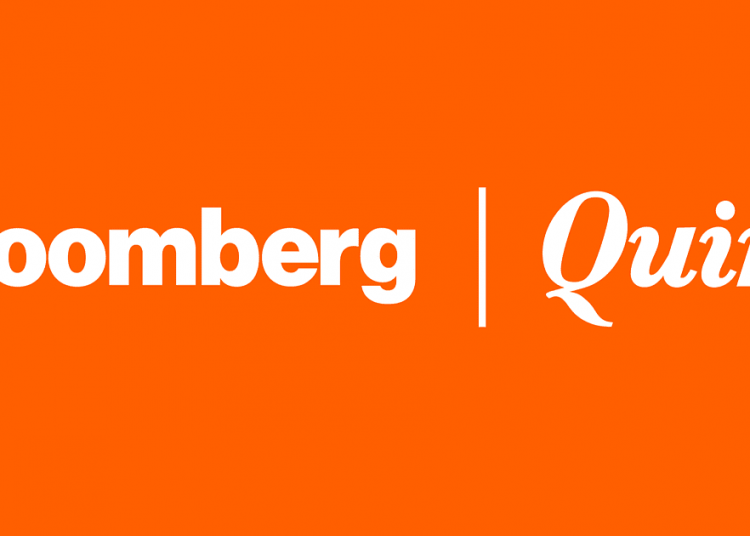(Bloomberg) — World leaders and corporate bosses are setting out what they will do to slow global warming — from emissions cuts to measures to force financial disclosure. So far, it’s been incremental measures only, and China disappointed.
That doesn’t bode well for the next round of climate talks next year in Glasgow, Scotland. The summit was seen as an opportunity to build momentum into 2021 when incoming U.S. President Joe Biden plans to rejoin the Paris deal and set a net-zero goal.
Still, there were some bold pledges in the runup. In an 11th-hour deal this week, the European Union agreed to cut emissions by at least 55% by 2030; the U.K. has pledged to cut by 68%.
- Xi takes small step to add details to carbon-neutral goal
- Argentina sets new goal
- Canada will spend $12 billion to cut emissions; hike carbon tax
- French companies agree to more disclosure
- Asset managers overseeing $9 trillion will run carbon-neutral investment portfolios by 2050
Argentina Sets Carbon Neutrality Goal (3:50 p.m.)
Argentina will target carbon neutrality by 2050, President Alberto Fernandez said. The new pledge includes a greenhouse gas emissions goal for 2030 that’s 25.7% lower than previously targeted.
No New Coal in Pakistan (3:50 p.m.)
Imran Khan, prime minister of Pakistan, pledged to stop building new coal-fired power plants. Pakistan has seen coal power capacity increase from very low levels to a substantial 5 gigawatts over the past five years.
He said 60% of all energy by 2030 will be from renewables and 30% of all vehicles will be powered by electricity.
China Disappoints (3:40 p.m.)
China’s announcement was seen as an incremental step.
“While this is a step in the right direction, it falls short of what is required to achieve its 2060 neutrality target,” said Byford Tsang at climate thinktank E3G. “The world will expect China to bring forward more ambitious plans for climate action in its forthcoming 14th Five-year Plan, including a roadmap to phase out coal.”
Modi Keeps Climate Ambition Vague (3:25 p.m.)
Indian Prime Minister Narendra Modi failed to make new concrete announcements on the climate ambition of the world’s third-largest polluter. Modi reiterated commitments announced in previous months, including increasing the country’s renewable power capacity to 175 gigawatts before 2022 and to 450 gigawatts by 2030.
“I must humbly share with you that India is not only on track to achieve its Paris Agreement targets, but to exceed them beyond expectations,” Modi said.
Small Islands Risk Oblivion (3:20 p.m.)
Small island nations are not among large emitters of greenhouse gases, but they’re among the most affected by global warming, said Barbados Prime Minister Mia Mottley. This year’s hurricane season has ended with a record of 30 named storms.
The survival of these nations depends on other countries raising ambition in their emissions pledges, she said. Without more ambition “There will be no build-back-better for countries and economies like mine.”
China’s Xi Underwhelms With New Goals (3:15 p.m.)
Chinese President Xi Jinping said the world’s biggest emitter would seek to cut emissions per unit of gross domestic product by “more than” 65% from 2005 levels by 2030, raising the target slightly from its previous goal of cutting pollution by 60% to 65%. China will seek to make non-fossil fuels about 25% of its primary energy mix by the end of the decade.
The promises were at the weakest end of forecasts by climate experts and raise questions about how serious China is about realizing its pledge to be carbon neutral by 2060.
Italy Increases Climate Finance (2:55 p.m.)
Italy will donate 30 million euros ($36 million) to the UN Adaptation Fund, Italian Prime Minister Giuseppe Conte said.
Italy is co-hosting COP26 with the U.K.
Macron Eyes New Climate Law (2:45 p.m.)
France will introduce a new climate law over the next few weeks which will include specific measures proposed by citizens to help the economy transition toward climate neutrality, French President Emmanuel Macron said.
Measures to transition toward a low-carbon economy include halting all support toward the exploration of new fossil fuel deposits within the next five years, not building new coal plants and forcing financial firms to disclose financial risk, he said.
Johnson Hints at Further U.K. Emission Cut (2:35 p.m.)
British Prime Minister Boris Johnson, co-host of the virtual summit, said the U.K. will cut carbon emissions by 68% “at least” by the end of the decade.
That may be a hint that the U.K., which hosts the COP26 climate talks next November, could announce further plans to reduce emissions in the months ahead. He had earlier committed to a 68% cut.
Johnson urged world leaders and businesses to back scientific innovations to help “defend the Earth against the disaster of global warming” and drive the recovery from the coronavirus pandemic. On Friday, he announced the U.K. will stop funding overseas fossil fuel projects with state money.
UN’s Guterres Tells Nations to Declare Emergency (2:15 p.m)
United Nations Secretary-General Antonio Guterres called on governments to declare a climate emergency to accelerate efforts toward carbon neutrality. That’ll be the UN’s central objective for next year, he said.
“Five years after the Paris Agreement we’re still not going in the right direction,” Guterres said. “Commitments made in Paris were far from enough — we are headed for a catastrophic temperature rise of 3 degrees.”
Macron Urges Corporate Disclosure (1:45 p.m.)
France’s largest companies have agreed to disclose their risks to climate change. The move is designed to boost transparency for investors, helping them to avoid companies that are least prepared for the shift to a low carbon economy.
But the measures, spearheaded by French President Emmanuel Macron, are non-binding.
Corporate disclosure is a key ask of Mark Carney, who is pushing for all countries to agree to make it mandatory for listed companies to report on their exposure to climate-change risks by 2023. The former Bank of England governor is now advising Johnson on climate finance ahead of the COP26 climate talks next year.
British Airways’ Hydrogen Plans (1:23 p.m.)
British Airways will work with hydrogen plane startup ZeroAvia to speed the switch to hydrogen power for commercial aircraft. The project is part of its parent IAG SA’s accelerator program, which gives small companies a chance to test their technology on a global scale. ZeroAvia has already demonstrated a six-seater plane powered by a hydrogen fuel cell and hopes to fly more than 1,000 miles in aircraft with more than 100 seats by 2030.
Who’s Not Invited? (1 p.m.)
Around 70 world leaders are showing up, from French President Emmanuel Macron to Pope Francis. The bar for entry was having something concrete to present. So who’s not on the list? Australian Prime Minister Scott Morrison, who supports fossil fuels, was excluded as he failed to come up with an ambitious enough pledge. Brazil’s Jair Bolsonaro was also left out; his plan is for other countries to pay Brazil to protect its forests. The leaders of big emitters like Russia, Mexico, Indonesia and Saudi Arabia are also absent.














